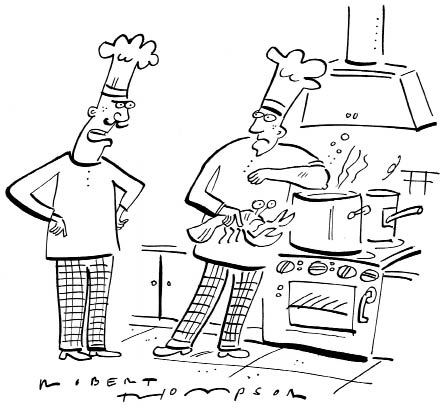What do Evelyn Waugh, Peter Cook and Chris Morris have in common? I would have said ‘irreverence’ and left it at that; but the social scientist Peter Wilkin has written a book on the subject, The Strange Case of Tory Anarchism.
What do Evelyn Waugh, Peter Cook and Chris Morris have in common? I would have said ‘irreverence’ and left it at that; but the social scientist Peter Wilkin has written a book on the subject, The Strange Case of Tory Anarchism. It’s an arresting title, not least because it appears to be an oxymoron.
But this is not so, according to Wilkin. Tory anarchism is not a political ideology; rather, it is a form of cultural dissent, proving that the upper classes still have the upper hand, despite the loutish inconvenience of mass transit, invasive government and the decline of domestic service. A Tory anarchist, then, is a member of the landless gentry who has a conservative moral and cultural outlook which he uses to critique prevailing norms and to protect the national character from further debasement.
Wilkin might be one of these impoverished toffs himself because he is the only person who fits the other criteria. He is wary of wolves in sheeps’ clothing and eviscerates those whose ambition perverts ‘national innocence’. The Daily Mail is described as the voice of ‘soft fascism’, and special opprobrium is reserved for Boris Johnson — a sinister figure who has
cultivated an avuncular public image in order to present himself as benign and likeable, assuming the guise of a minor figure from P. G. Wodehouse … worn for reasons of political strategy.
Analytically, Wilkin either fails to define his terms or misapplies them when he does. Waugh and Cook were not gentry, landless or otherwise. If Wilkin meant ‘well-educated and well-heeled’, why doesn’t he say so? He also confuses anarchic in a figurative sense with anarchy in a literal sense. Most of the writers he cites were satirists; their wit was often anarchic. But Peter Cook regaling Dudley Moore about his nightly visits from the naked Betty Grable, tapping at the bloody window pane, is not a call for anarchy.
Nor is it clear what Wilkin means by ‘Tory’. He describes Toryism as a reaction against the overbearing state, and he characterises Tories as stubborn non-conformists. To develop the latter point, he tries to link his subjects’ individuality to the history of religious non-conformity, a movement that was anything but Tory.
But if Wilkin’s book looks like an enthusiast’s ploy to revisit his favourite authors and then concoct an argument to justify doing so, it is at least entertaining. You chuckle as you read his jaunty prose on Decline and Fall, A Handful of Dust and Vile Bodies. He lists the ‘delightfully named characters’ and retells the jokes faithfully; his account of Tony Last’s fate, reading Dickens to a lunatic in the Amazon Basin, is particularly memorable. He gives Peter Cook, Auberon Waugh, Michael Wharton, Willie Donaldson, Ray Davies, Chris Morris and Charlie Brooker similar due, producing just as much merriment, and contriving a medley of English Wits’ Greatest Hits.






Comments